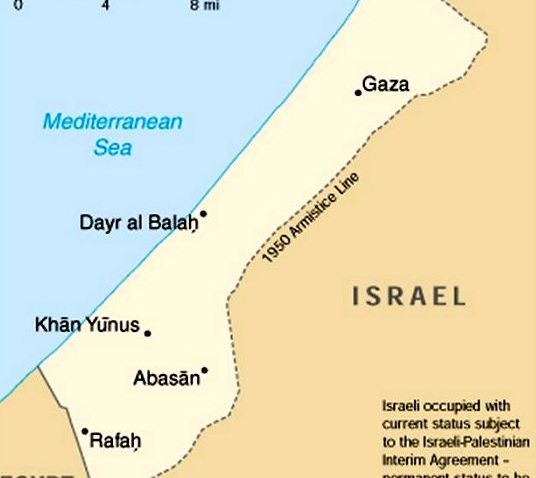JERUSALEM -- The people who write books about what has come to be known as "asymmetrical warfare" could fill many chapters by examining Israeli frustration with Palestinian rocket attacks on Israeli towns. One full chapter could be written about what happened this Wednesday, when the Israeli government decided on a new set of measures to try to stop the rocket fire, only to find their decision to name Gaza an "enemy entity" managed to upset just about everyone, from Palestinians to Israelis, along every point on the political spectrum. Almost every day Palestinians have been firing Qassam rockets into Israeli areas near the Gaza strip. More than 4,000 rockets have fallen over the course of some seven years. The town of Sderot, within sight of Gaza, has been the primary target. The beleaguered people of Sderot thought their life of constant fear and anguish would finally return to normal when Israel decided to withdraw all its settlers and soldiers from Gaza in 2005. Instead, the Qassam fire only intensified. With Israeli soldiers out of Gaza, it became more difficult to prevent the attacks. In Sderot, practically everyone has a story of miraculous survival. Rockets have fallen on kindergartens, high schools, empty yards and apartment buildings. So far, only 14 people have been killed by the Qassams, but thousands are living with the emotional injuries, and everyone knows a much larger tragedy is only a matter of time. With only bad choices available, Israeli Prime Minister Ehud Olmert's security cabinet made a dramatic decision this week. It labeled Gaza an "Enemy Entity." With that designation, it announced that it would disrupt power and fuel supplies to the strip if the rocket fire continues. The idea, they said, is to pressure Hamas to stop the attacks. With each new attack, the cuts in basic supplies would start taking place. Israeli officials took pains to say humanitarian needs would be respected, but it was clear the idea is to make life difficult in order to pressure Hamas, which has full control of Gaza, into preventing the Qassam fire.
Stopping the Rockets from Gaza: A Case Study in Frustration

